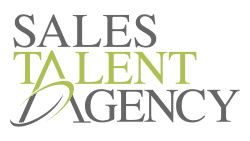
BY SONYA MELOFF
These days when it is easy to blame a lost deal or sales opportunity on a bad economy, it is time for you to take an honest look at yourself and decide: am I really a sales expert? Sales experts are not afraid to pick up the phone or knock on a door to introduce themselves. Sales experts know how to develop rapport, they listen to their client and they present a compelling value proposition. In short, sales experts know how to bring in revenue. On the other hand, bad sales people are always waiting for the phone to ring, and blame lost sales opportunities on their product, their company, the client and the economy.
There are far too few of the former and far too many of the latter.
Here are a few questions that may help you decide if you are truly a sales expert:
1. What is the best time to make a cold call?
a. When my pipeline is depleted and I need new opportunities
b. Before 9am and after 5pm so that I can get to decision makers when their gatekeepers are not around – but never on a Friday! If I miss those windows there is no point
c. I try to avoid gatekeepers, but I am more focused on ensuring I cold-call for at least 2 hours every day
2. You have left numerous voicemails for a hot prospect with no call back, what is your next step?
a. Screw them! I will move on to the next opportunity
b. I will keep calling and leaving messages – I won’t stop until they call back
c. I will regroup and try a different tact: I may drop into their office, or will find someone else in that company (or in the decision maker’s network) to make an introduction
3. You walk into a scheduled first meeting with your prospect only to be told by an assistant that your contact had to leave early and your meeting has been cancelled. What do you do?
a. Get frustrated, leave and don’t look back. You have put a lot of preparation time into this meeting and have travelled a long way to be here – why do business with people who do not respect your time and efforts?
b. Get frustrated but try and salvage the situation by presenting your solution to the assistant
c. Get frustrated but never show it. Leave a polite note for your contact and book another meeting while you are there. Check to see if there is anyone more senior to your contact available that you could briefly introduce yourself to before you leave
4. What part of the sales process are you best at?
a. Negotiating: I know what I am selling is essential to my client and I am great at holding to my price
b. Presenting: I build exceptional sales presentations and am really comfortable in front of a big audience of decision makers – just put me in and stand back!
c. Discovery: I do my best work when I listen to my customer. I need to understand their current state and their goals and I need to know how and why they make decisions
5. If you were not a sales person, you would be:
a. An Actor: I love putting on a big show and entertaining people
b. A Lawyer: I love making compelling arguments that sway people’s decisions
c. An Entrepreneur: I love the process of business and looking for unfilled gaps in the marketplace
6. How important is it to believe in the product/service you are selling?
a. I only want to sell something that is easy
b. I can sell ice to Eskimos – it does not matter if what I sell works or not
c. I have to believe that what I am selling truly fills the need and lives up to the value proposition
7. You were the sales lead in a team-based presentation to a big prospect. The decision makers reject your proposal and opt for a competitor’s solution. Who is to blame?
a. The client: They just did not get it! They will be out of business in 6 months!
b. The team you presented with: They screwed up their part of the presentation. They will be out of a job in 6 months!
c. I am. I failed to meet the client’s expectations; I failed to prepare my team properly; I failed to research who I was competing with; I failed to articulate the value of my solution. I will never make that mistake again
8. How full should your sales pipeline be?
a. I don’t use a sales pipeline. I just go out and sell
b. My close ratio is much higher than my peers, so I don’t need as much in my pipeline as they do to meet my numbers
c. I need to have 3 times my quota in my pipeline at any one time, but I try to have much more than that so I can over achieve
9. After you have presented your proposal, your client says: “Your competitor’s solution is much cheaper”. Do you:
a. Say: “What price did they present? – I’ll beat it by 5%”
b. Immediately explain why your price is fair based on the increased value of your solution
c. Don’t say a word – that was not a question and did not require a response – what your client says after the silence will dictate your next step
10. Your favourite thing about sales is:
a. The perks: car allowance, expense account, not being stuck in an office – life is sweet
b. The money: sales reps get paid more than most other roles in a company
c. The competition: with your peers, other companies, but most important with yourself
If you answered mostly A’s and B’s, it is time to find a new career. Being a great sales person takes hard-work, consistency, empathy, common sense, and a highly competitive spirit – this does not describe you.
If you answered mostly C’s, congratulations! You are a sales expert and are able to deliver the one thing that every company in the world is looking for: revenue. You are the pride of the sales profession and we salute you. Now go sell something!
